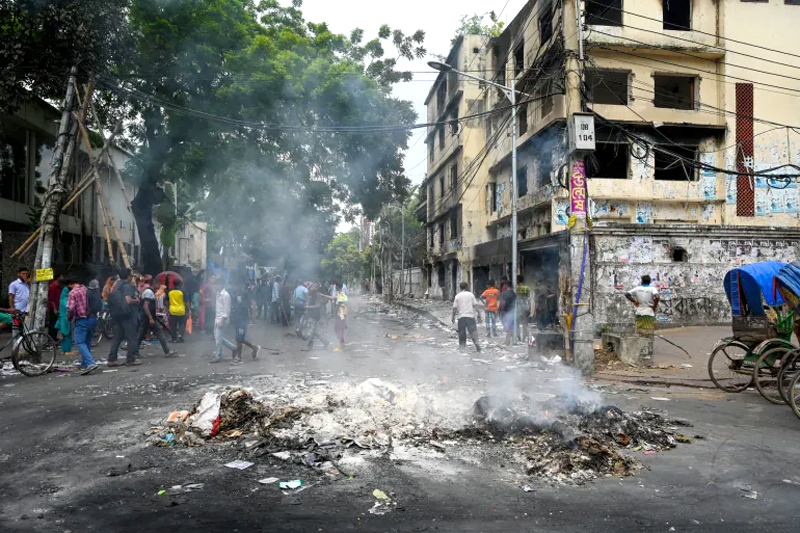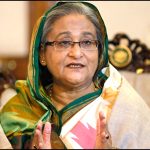Bangladesh’s Parliament has been dissolved, a day after longtime Prime Minister Sheikh Hasina resigned and fled the country following weeks of deadly unrest.
President Mohammed Shahabuddin announced that parliament had been dissolved after assuring earlier that new elections would be held as soon as possible.
The announcement came after a scheduled meeting between the protest organisers and the army chief.
Organisers of student-led protests met with army officials, insisting they will not accept a military-led government.
Student protest leaders have repeatedly said they would not accept an army-led government.
“We have given our blood, been martyred, and we have to fulfil our pledge to build a new Bangladesh,” Islam said.
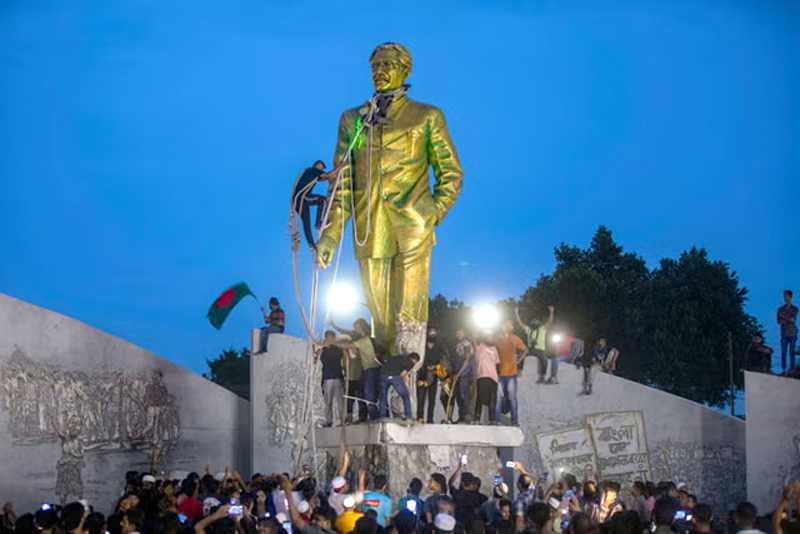
“No government other than the one proposed by the students will be accepted. As we have said, no military government, or one backed by the military, or a government of fascists, will be accepted.”
Shahabuddin, the country’s figurehead president, also announced that it was “unanimously decided” to immediately release the opposition Bangladesh Nationalist Party (BNP) chairperson and Hasina’s nemesis, Begum Khaleda Zia, who was convicted in a corruption case in 2018 but moved to a hospital a year later as her health deteriorated. She has denied the charges against her.
Bangladesh has released Begum Khaleda Zia, the chair of the main opposition party, from house arrest, the president’s office announced.
Zia, 78, who twice held the post of prime minister, was convicted in a corruption case in 2018 and sentenced to 17 years in prison.
The protests began peacefully last month as frustrated students demanded an end to a quota system for government jobs that they said favoured those with connections to the Hasina’s Awami League party.
Key organisers of Bangladesh’s student protests have said Nobel Peace Prize laureate Muhammad Yunus should head an interim government after longtime Prime Minister Sheikh Hasina resigned and fled the country.
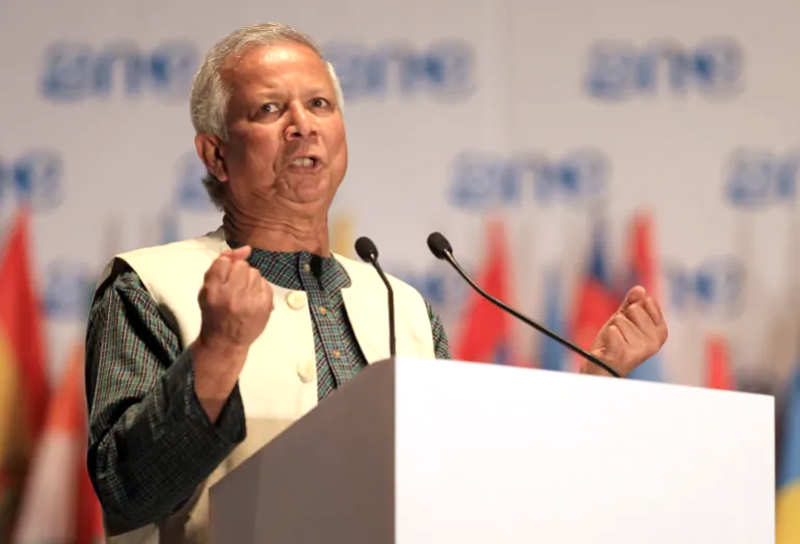
Nahid Islam, a 26-year-old sociology student who spearheaded the protest movement against quotas in government jobs that morphed into a national uprising against the administration, said in a video post on social media that Yunus had consented to take over.
An interim government is taking shape in Bangladesh, a day after Sheikh Hasina resigned and fled the country and the military took control amid massive protests.
Crowds also ransacked Hasina’s family ancestral home-turned-museum where her father, Sheikh Mujibur Rahman – the country’s first president and independence leader – was assassinated.
Hasina, meanwhile, landed at a military airfield near New Delhi and met India’s National Security Adviser Ajit Doval, according to Indian media reports, which also said that she was taken to a safe house and was likely to travel to the United Kingdom.
India’s Foreign Minister S Jaishankar on Tuesday gave the first official confirmation that Hasina was in the country. He told parliament during an emergency meeting that he was “deeply concerned till law and order is visibly restored” in neighbouring Bangladesh.
Protesters remove Mujibur Rahman’s portrait at Bangladesh consulate in US
After Sheikh Hasina stepped down as prime minister of Bangladesh, protesters in the United States stormed the Bangladesh consulate in New York.
A video of the incident which has been posted on social media shows a crowd of protesters barging into the building and taking down the portraits of Sheikh Mujibur Rahman, the founder of Bangladesh
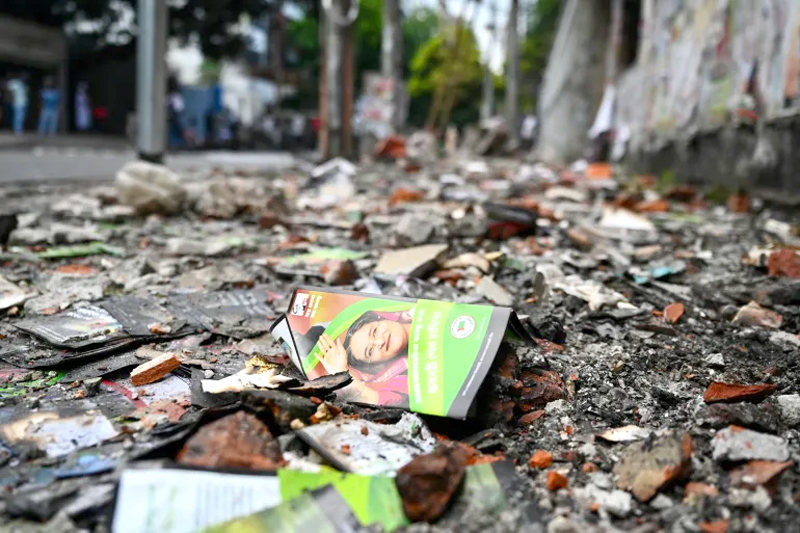
The International Monetary Fund said it remained “fully committed to Bangladesh and its people” after protests ousted the prime minister.
Bangladesh’s president dissolved parliament, clearing the way for new elections a day after Prime Minister Sheikh Hasina resigned and fled the country following student-led protests that left hundreds dead.
Long-term lending from multilaterals including the IMF, World Bank and the Asia Development Bank amounts to roughly a quarter of Bangladesh’s GDP, according to emerging market experts Tellimer, making their continued backing key to the country’s economy.
The IMF, which approved a $4.7 billion loan programme with the country in January 2023, said it was following developments and “deeply saddened by loss of lives and injuries.”
Former Bangladeshi prime minister Sheikh Hasina is expected to remain in India until the UK grants her asylum, according to Bangladeshi news channel Republic TV.
The TV channel reports that India is set to provide Hasina with all necessary logistical support, as quoted by their New Delhi correspondent.


